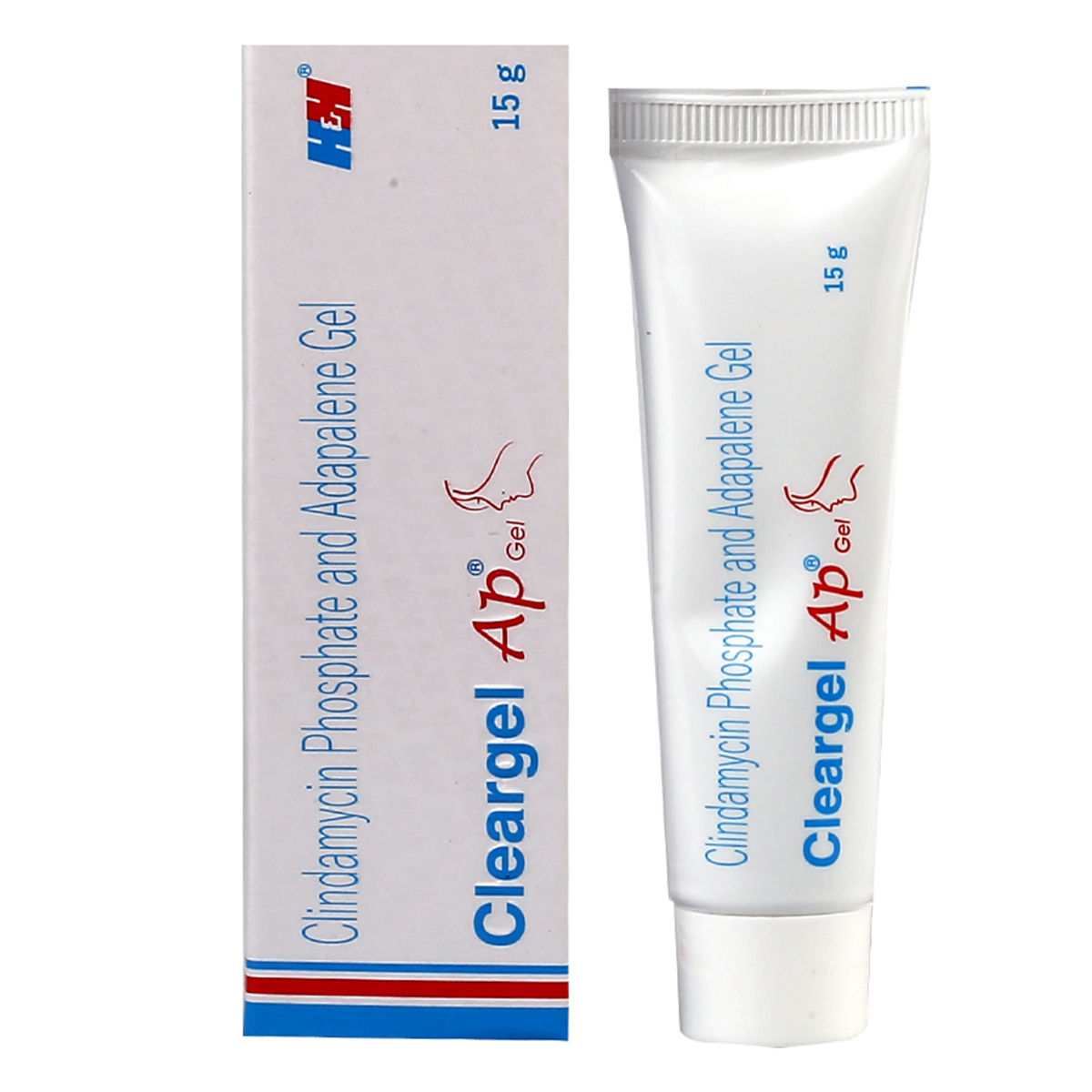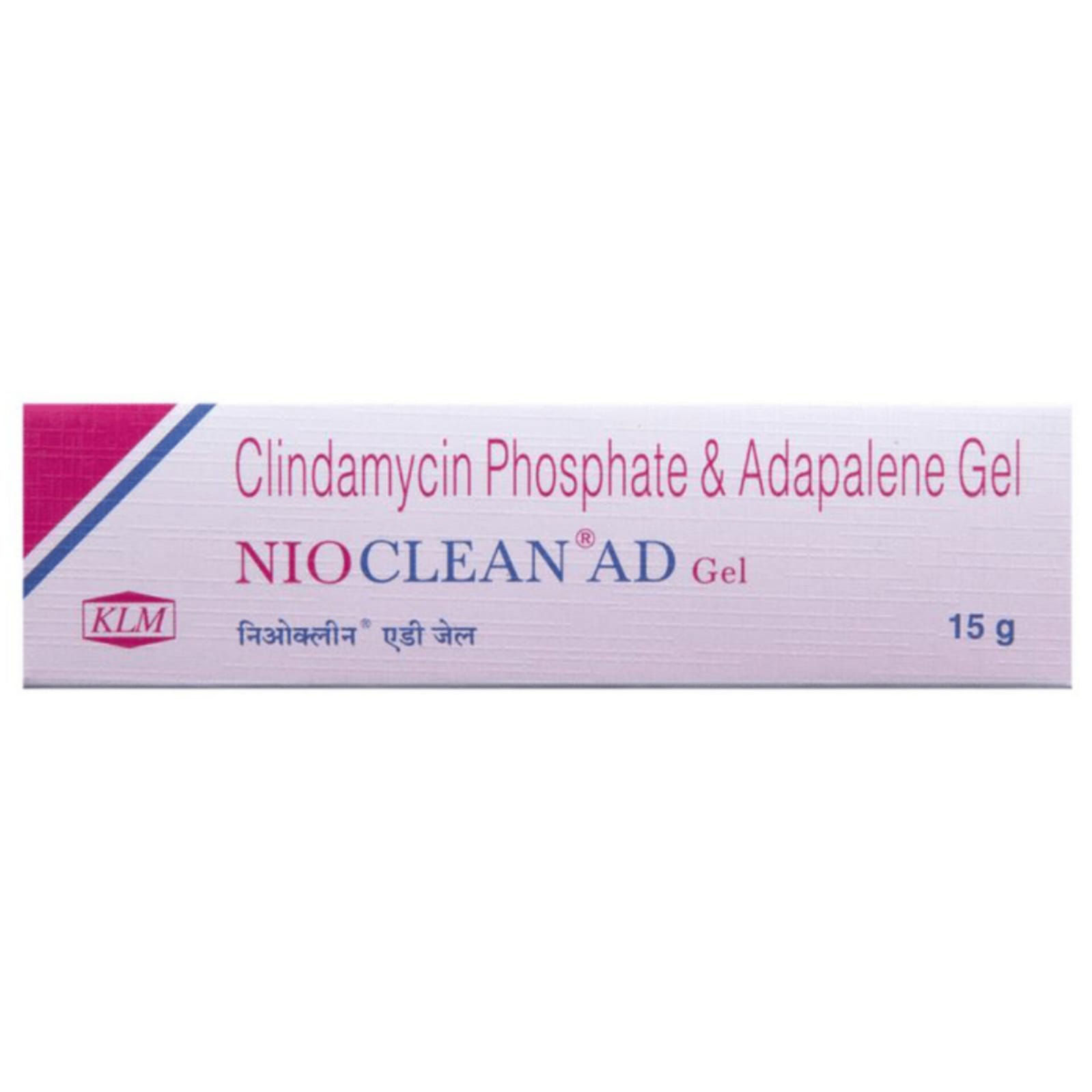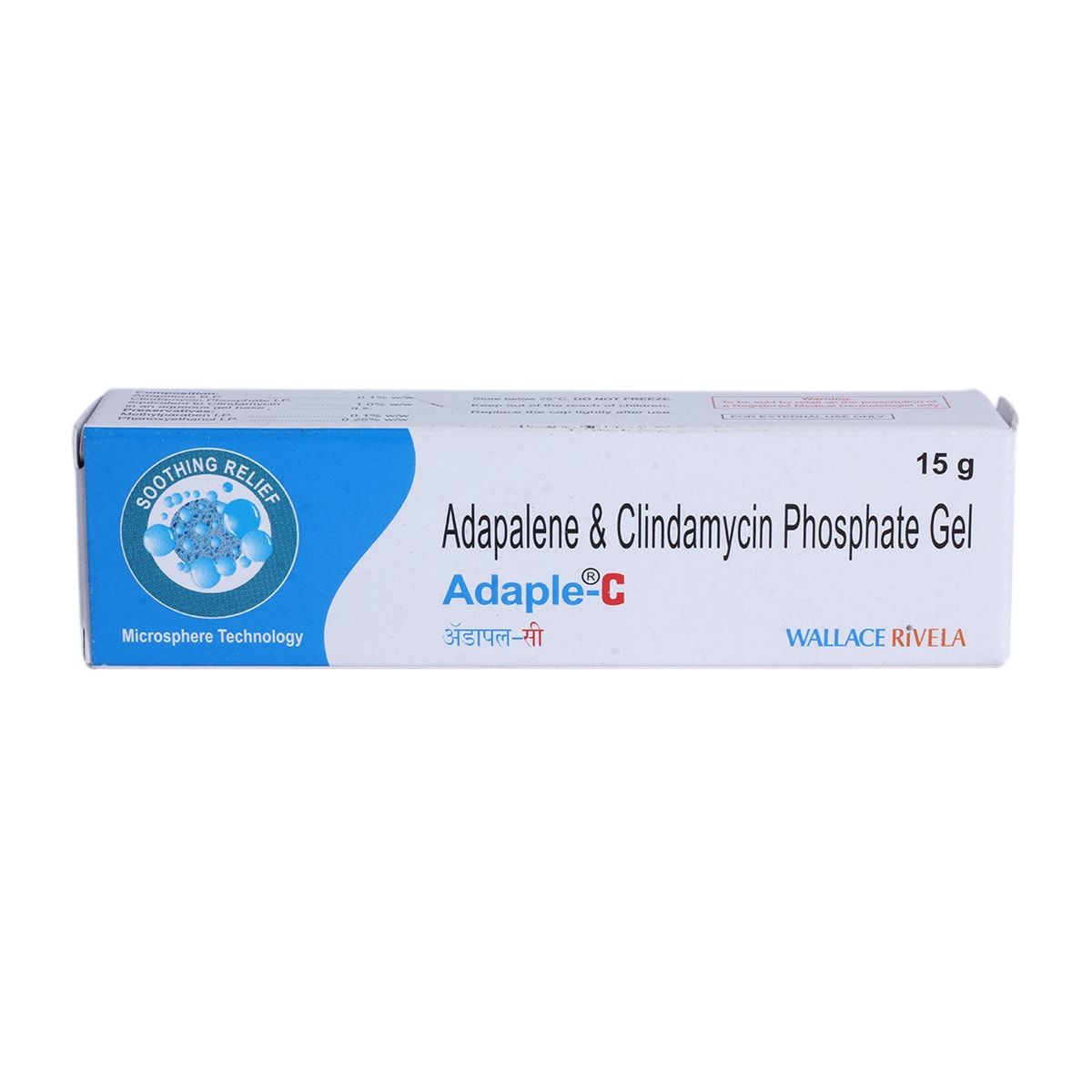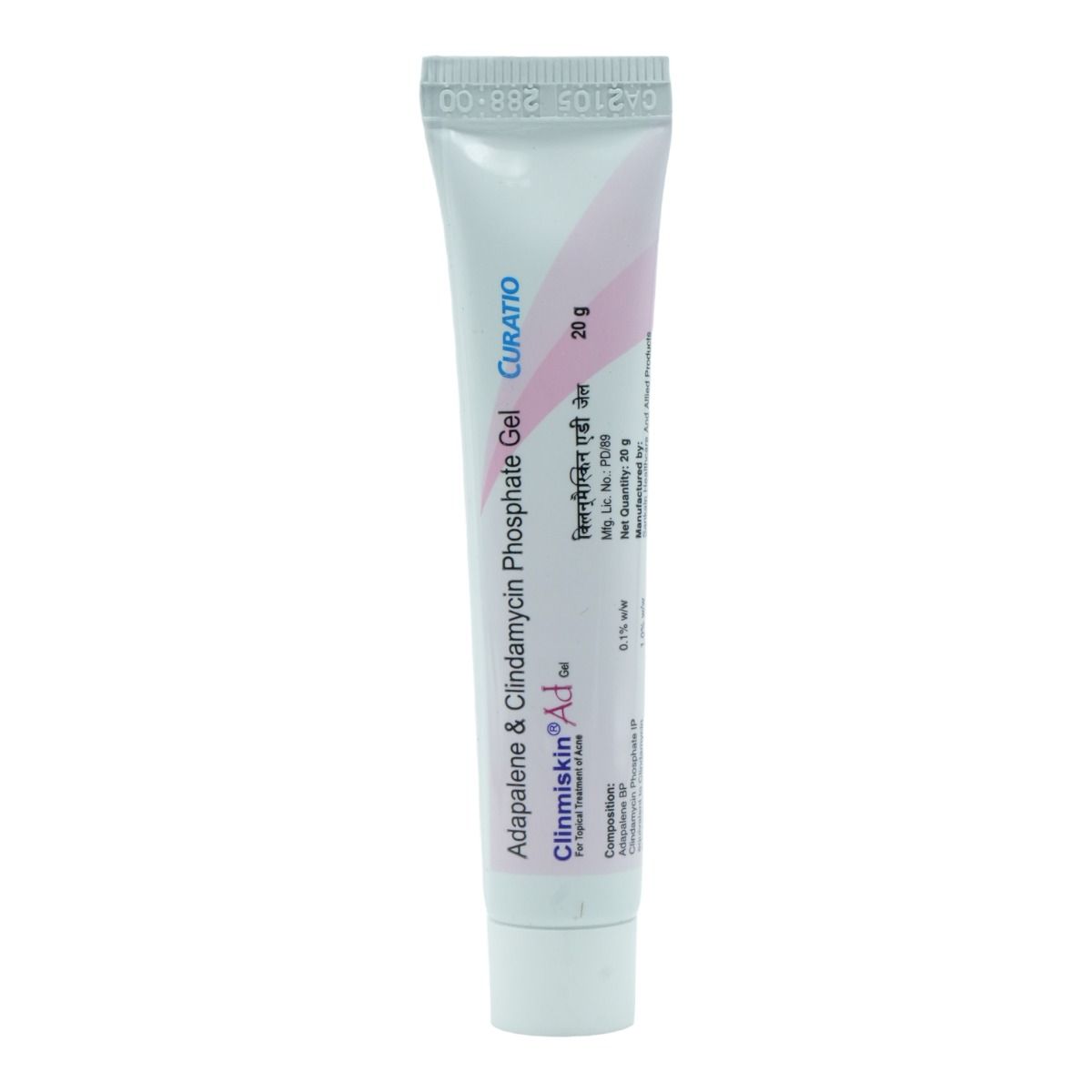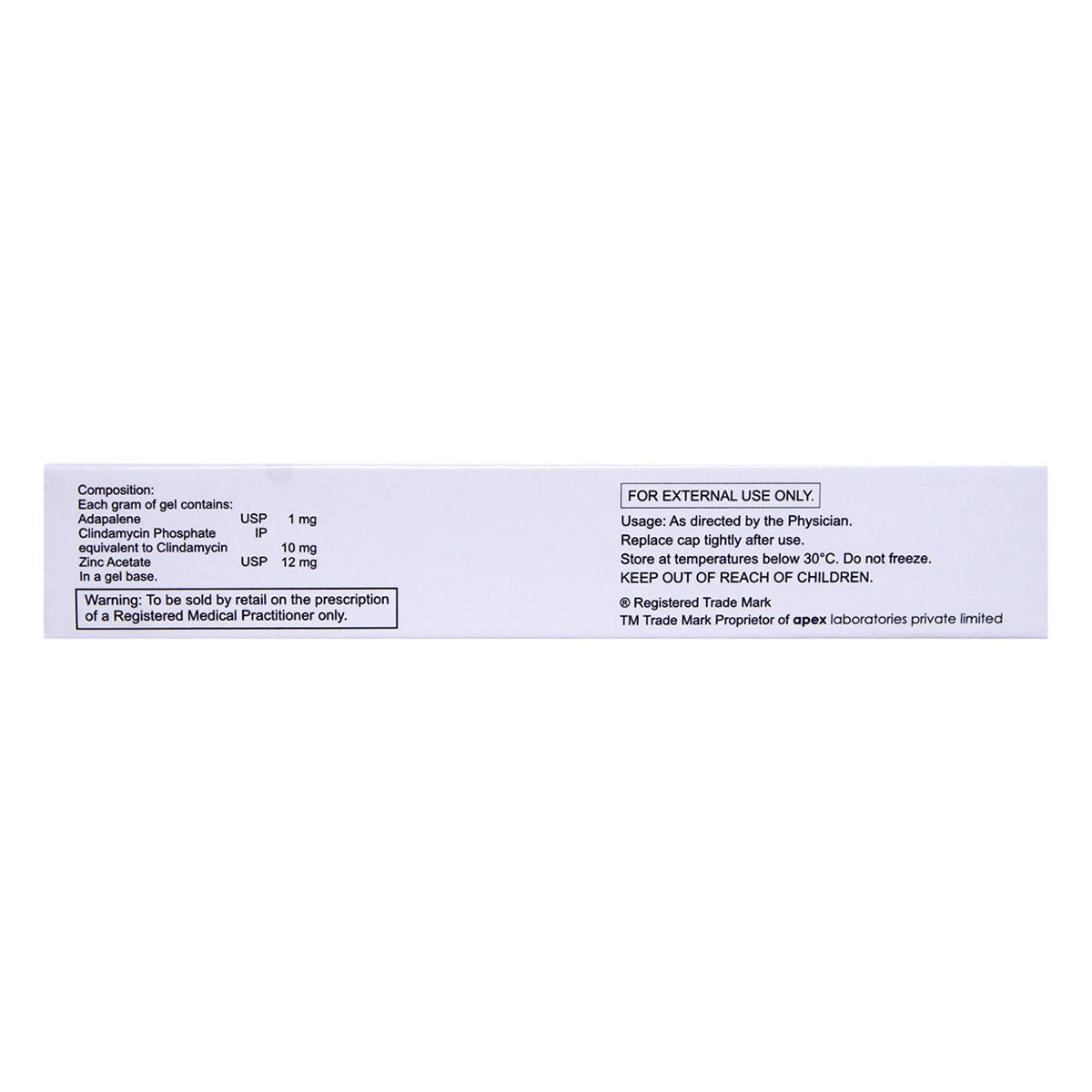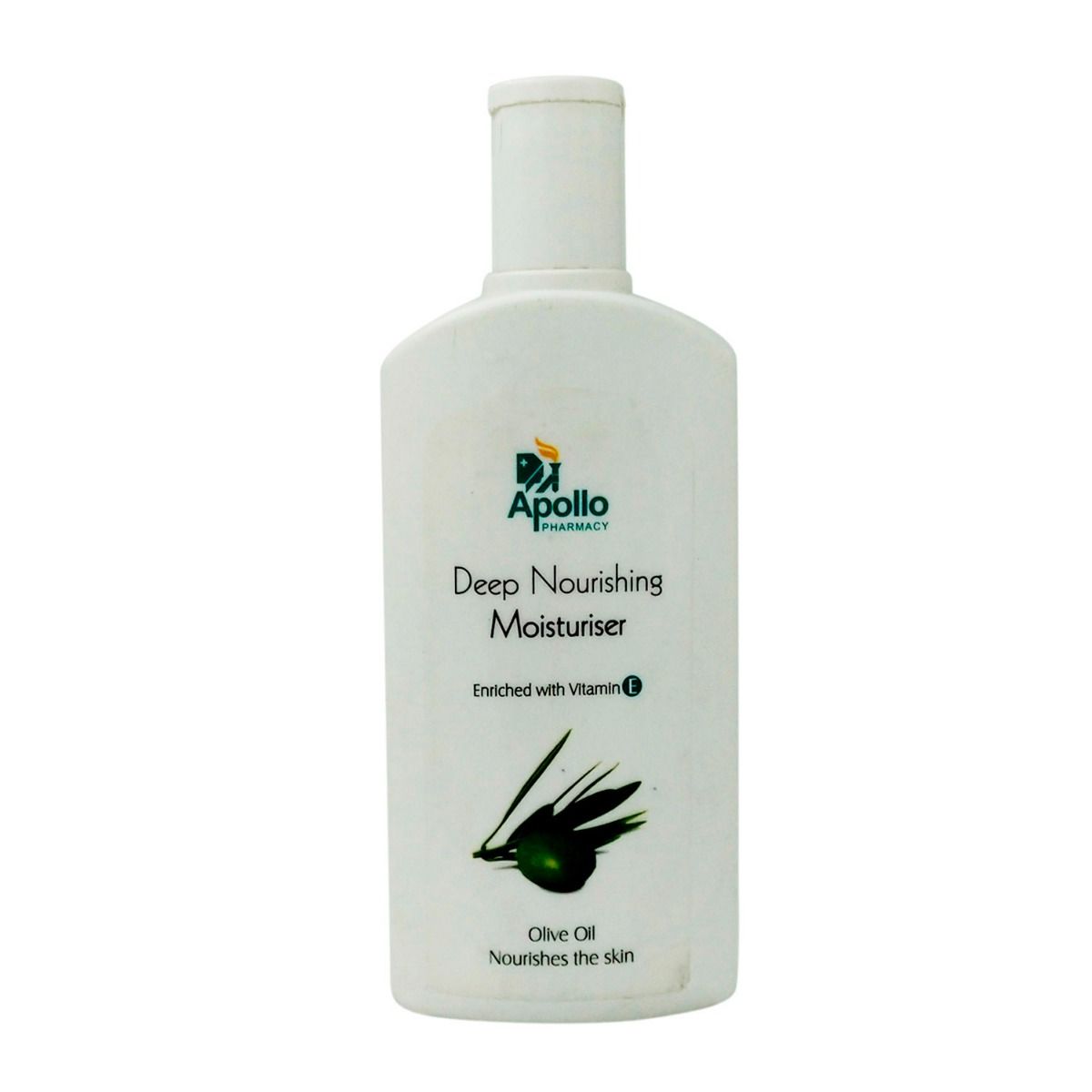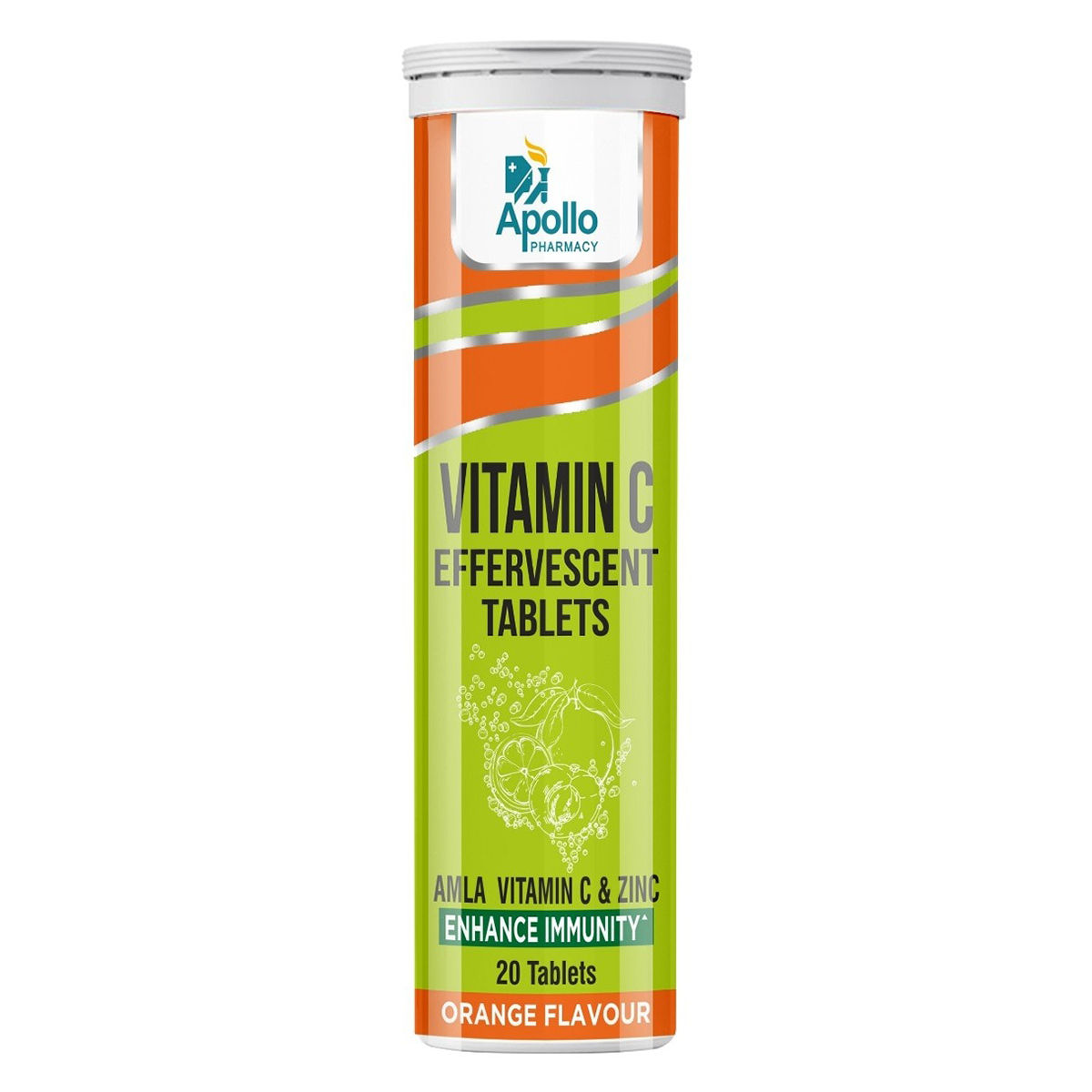Clap Gel 15 gm
₹225*
MRP ₹250
10% off
₹212.5*
MRP ₹250
15% CB
₹37.5 cashback(15%)
Free Delivery
With Circle membership
(Inclusive of all Taxes)
This offer price is valid on orders above ₹800. Apply coupon PHARMA10/PHARMA18 (excluding restricted items)
Know Your Delivery Time
Provide Delivery Location

Available Offers
 Prescription drug
Prescription drugWhats That

Secure Payment

India's Most Trusted Pharmacy

Genuine Products
Composition :
Manufacturer/Marketer :
Consume Type :
Return Policy :
Expires on or after :
About Clap Gel
Clap Gel belongs to the class of dermatological preparations called 'antiacne' used to treat acne (pimples). Acne is a skin condition that is common and occurs when hair follicles are blocked with dead skin cells and oil. The acne-causing bacteria feeds on sebum (natural oil produced by skin), causing redness and swelling.
Clap Gel is a combination of two medicines, namely: Adapalene (human-made vitamin A) and Clindamycin (antibiotic). Adapalene (human-made vitamin A) works by loosening the cells on the skin’s surface and unblocks pores by reducing the production of oil in the skin, thereby reducing the formation of pimples, whiteheads, and blackheads on the skin surface. Clindamycin belongs to the class of antibiotics that works by inhibiting the production of essential proteins that are necessary for bacteria to grow, multiply and increase in numbers. Altogether it stops or slows down the growth of bacteria and prevents the growth of acne.
Clap Gel is only for external use. Take a small amount of Clap Gel on the finger and apply it as a thin layer on the clean and dry affected area. Avoid contact of Clap Gel with nose, ears, mouth, or eyes. In case Clap Gel comes in contact with these areas accidentally, rinse with warm water thoroughly. Your doctor will advise you how often you take Clap Gel based on your medical condition. In some cases, you may experience skin peeling, dry skin, irritation, redness, itching, or burning sensation at the site of application. Most of these side effects of Clap Gel do not require medical attention and gradually resolve over time. However, if the side effects persist or worsen, please consult your doctor.
If you are known to be allergic to Clap Gel or any other medicines, please tell your doctor. Do not apply Clap Gel to cuts, open wounds, broken, sunburnt or sensitive areas of skin. Avoid sun exposure while using Clap Gel as it may make the skin more sensitive to sunlight and cause sunburn. Wear protective clothing and use sunscreen while going out to protect your skin from sunburn. If you are pregnant or breastfeeding, please inform your doctor before taking Clap Gel. Do not apply Clap Gel in large amounts or use for a long time than prescribed as it does not give quick or better results but increases the risk of side effects such as redness, irritation, skin peeling, or discomfort. If you have intestine problems or eczema, please inform your doctor before taking Clap Gel.
Uses of Clap Gel
Directions for Use
Medicinal Benefits
Clap Gel is a combination of two drugs; namely, Adapalene and Clindamycin used to treat acne (pimples). Adapalene is a retinoid (human-made vitamin A) that loosens the cells in the skin’s surface and unblocks pores by reducing the production of oil in the skin. Thereby, decreases pimples, spots, whiteheads and blackheads. Also, Adapalene increases the production of new skin cells and helps in natural exfoliation (removal of dead skin cells) of outer layers of the skin. Clindamycin is a broad-spectrum antibiotic that acts against both aerobic (grow in the presence of oxygen) and anaerobic (grow in the absence of oxygen) gram-negative and gram-positive bacteria. Clindamycin inhibits the production of essential proteins that are necessary for bacteria to grow, multiply and increase in numbers. Together it stops or slows down the growth of bacteria, causing acne and heals the skin by reducing swelling and redness.
How Clap Gel Works
Storage
Side Effects of Clap Gel
- Skin peeling
- Dry skin
- Irritation, redness, itching or burning sensation at the site of application
What if I have taken an overdose of Clap Gel
Drug Warnings
If you are known to be allergic to Clap Gel or any other medicines, please tell your doctor. Do not apply Clap Gel to cuts, open wounds, broken, sunburnt or sensitive areas of skin. Avoid sun exposure while using Clap Gel as it may make the skin more sensitive to sunlight and cause sunburn. Wear protective clothing and use sunscreen while going out to protect your skin from sunburn. If you are pregnant or breastfeeding, please inform your doctor before taking Clap Gel. Do not apply Clap Gel in large amounts or use for a long time than prescribed as it does not give quick or better results but increases the risk of side effects such as redness, irritation, skin peeling, or discomfort. If you have intestine problems or eczema, please inform your doctor before taking Clap Gel.
Drug-Drug Interactions
Drug-Drug Interactions
Login/Sign Up
Drug-Food Interactions
Drug-Food Interactions
Login/Sign Up
Diet & Lifestyle Advise
Avoid sun exposure while using Clap Gel as it may make the skin more sensitive to sunlight and cause sunburn. Try to wear protective clothing and use sunscreen while going out to protect your skin from sunburn.
Regular exercise can improve your mood and self-esteem though it doesn’t clear acne. Take a shower immediately after finishing exercise as sweat may irritate acne.
Do regular hair wash regularly and avoid hair falling across the face.
Remove the make-up completely before going to bed.
Avoid using products that may cause skin irritation such as harsh soaps, skin cleansers, shampoos, hair removers or waxes, hair colouring or permanent chemicals, detergents, and rough fabrics.
Habit Forming
Therapeutic Class
Clap Gel Substitute

Deriva Cms Gel 15 gm | Adapalene & Clindamycin | For Treatment Of Acne & Pimple
by Others
₹31.00per tabletAdalene Nano Gel 15 gm | Clindamycin & Adapalen | For Acne Treatment
by Others
₹24.60per tabletCleargel AP Gel 15 gm | Clindamycin & Adapalene | For Treatment Of Acne & Pimple
by Others
₹21.68per tabletNioclean AD Gel 15 gm
₹11.97per tabletAdaple C Gel 15 gm
by AYUR
₹19.65per tablet
Product Substitutes
Alcohol
Caution
Interaction of Clap Gel with alcohol is unknown. Please consult a doctor before consuming alcohol while using Clap Gel.
Pregnancy
Caution
The safety of Clap Gel in pregnant women is unknown. Therefore, it is given to pregnant women only if the doctor thinks benefits outweigh risks.
Breast Feeding
Caution
Do not apply Clap Gel on the breast. You are advised to breastfeed only if the doctor thinks benefits are greater than risks.
Driving
Safe if prescribed
Clap Gel usually does not affect your ability to drive or operate machinery.
Liver
Safe if prescribed
If you have any concerns regarding the use of Clap Gel in patients with Liver problems, please consult a doctor.
Kidney
Safe if prescribed
If you have any concerns regarding the use of Clap Gel in patients with kidney problems, please consult a doctor.
Children
Unsafe
Clap Gel is not recommended for children as the safety and effectiveness were not established.
FAQs
Country of origin
Manufacturer/Marketer address
Customers Also Bought
Disclaimer
Author Details
We provide you with authentic, trustworthy and relevant information








